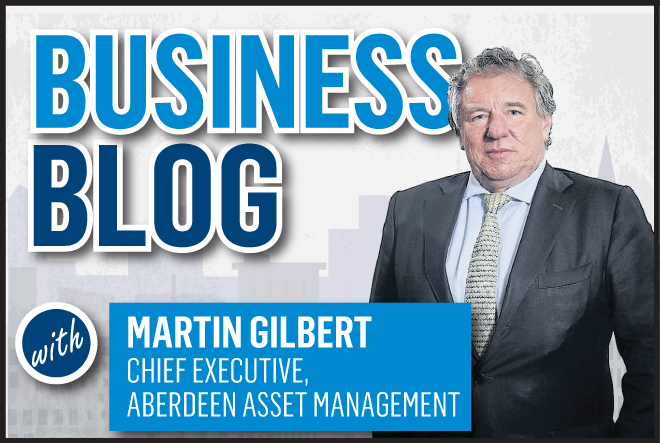An inquiring mind is generally regarded as an asset in most areas of life, but in fund management (and business generally) it’s an absolute necessity.
If you don’t ask questions, it’s unlikely anyone will volunteer information. That puts any investment manager – and therefore his clients too – in the high-risk position of being inadequately informed about what is happening to the money they’ve invested. That’s a potentially disastrous situation, as we saw in 2008.
Eric Schmidt, now the executive chairman of Google and formerly the company’s CEO, once said: “We run this company on questions, not answers.” That’s absolutely the right approach and it helps to explain why he is one of the richest people in the world, with a personal fortune of $8.3billion. His track record makes his advice worth listening to and his insistence on a relentlessly questioning approach is a template that should be followed by managers.
At Aberdeen we have always asked questions at every stage of our relationship with companies we invest in. It starts with the thorough in-house research we carry out into the prospects, management practices and senior personnel of companies. But it doesn’t simply end if they get a clean bill of health and we decide to invest in them. We don’t tick a box and walk away satisfied; we know very well that just because everything is working smoothly at the start of our relationship, that’s no guarantee things will not deteriorate or some unexpected development damage our investment.
So, we maintain a watching brief. We keep on asking questions and we insist on clear answers. In the financial industry, as in any other, a basic amount of technical language is necessary, even helpful to communication. But the bulk of the jargon cluttering up asset management today serves no other purpose than to confuse and obfuscate. With our commitment to simplicity, we brush aside all that camouflage to find out what is actually happening.
That’s why we insist on meeting management so regularly. Some companies may regard large investors like us as a thorn in their flesh, always asking about where the business is going, what it is doing and how it is planning for the future. But we’re completely unapologetic about this approach because we have a responsibility to the clients who entrust us with their money to ride shotgun on the organisations with whom we’ve invested it.
The simplest question can often have the most profound answer. But you won’t discover it unless you ask in the first place. We’ve spent many years investing in emerging markets and these can be very volatile. Experience has taught us that the moment you pause, thinking you have the answers, is very likely the time when something will happen that tests those assumptions to breaking point.
That means, however, that volatility can be a good thing. Constant exposure to its risks teaches you that you can’t take much for granted. It keeps a vigilant fund manager on his toes, honing his skills to an extent that may improve his performance, provided he never succumbs to complacency. A good manager is someone who keeps on asking questions, even when everything seems to be going well. There’s no soft option, you have to be rigorous in your approach and never let up.
Herds muster when too few questions are asked. There’s a temptation, across the financial industry, to follow the herd instead of standing back and questioning all the assumptions motivating its behaviour.
Too many of the same kind of people running a company can result in a failure to ask the right questions, even the most urgent ones. Group-think sets in and managers encourage one another to take a blinkered approach to their investments. The lemming mindset is a real hazard in the financial world, as the industry learned to its cost in 2008. If more questions had been asked about Northern Rock in the run up to the crisis, a lot of pain, financial and reputational loss could have been avoided.
We don’t just ask questions to the management of the companies we invest in, we also regularly question how we do things within Aberdeen. There is always a risk of becoming set in your ways and thinking “this is how we’ve always done it” and therefore it’s the best approach. Without asking questions it’s very hard for companies to progress.
Of course, as in so many other things, being Scottish probably helps. Our national character is thrawn (a good Scots word) and inclined to question assumptions that a lot of other people take at face value. I’m sure some executives in companies we’ve invested in regard us as a bunch of nosey parkers. Well, it’s our job to be inquisitive, on behalf of our clients who trust us to manage their money.
So, we’ll continue making relentless inquiries because we have a responsibility to do so as managers of a business and custodians of our clients’ money. The key to profitable investment and good management can be summed up in the old interrogation cliché from British war films: “We will ask the questions.”
Martin Gilbert, co-founder and chief executive of Aberdeen Asset Management
